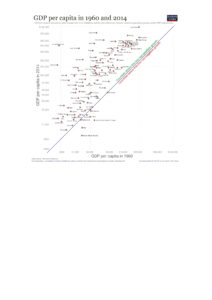rebel Financial is a Registered Investment Advisor that provides retirement planning, estate planning, financial planning, and investment management services to individual and institutional clients. To get a more detailed description of the company, its management, and practices, view our (form ADV, Part2A) and Disclosures.
Fiduciary & Fee-Only Financial Advisors and Planners

 It’s not uncommon to hear people wish that we could return to the “good old days,” when the world seemed more prosperous. Of course, depending on how far you go back, the “good old days” might cover a time when the world was poised on the edge of a nuclear precipice, when the Soviet Union and other communist governments basically enslaved more than 50% of the world’s population, when racism was practiced openly and codified in the legal system, when there was no Internet or smartphones, and when TV entertainment consisted of three or sometimes four channels on a heavy, small-screen device that didn’t include a remote.
It’s not uncommon to hear people wish that we could return to the “good old days,” when the world seemed more prosperous. Of course, depending on how far you go back, the “good old days” might cover a time when the world was poised on the edge of a nuclear precipice, when the Soviet Union and other communist governments basically enslaved more than 50% of the world’s population, when racism was practiced openly and codified in the legal system, when there was no Internet or smartphones, and when TV entertainment consisted of three or sometimes four channels on a heavy, small-screen device that didn’t include a remote.





